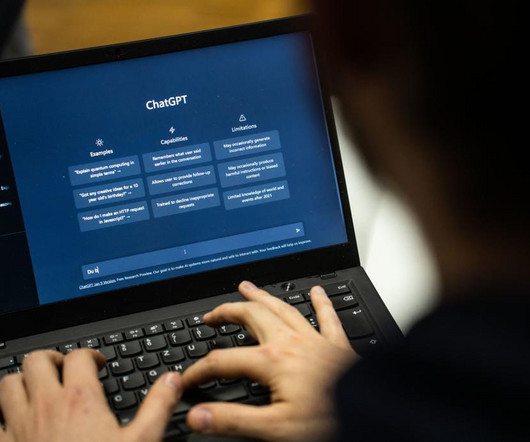Doomsday Predictions Around ChatGPT Are Counter-Productive
The Horizons Tracker
SEPTEMBER 4, 2023
Goldman Sachs predicted 300 million jobs would be lost, while the likes of Steve Wozniak and Elon Musk asked for AI development to be paused (although pointedly not the development of autonomous driving). It is difficult to underestimate the importance of self-efficacy in personal development.














Let's personalize your content